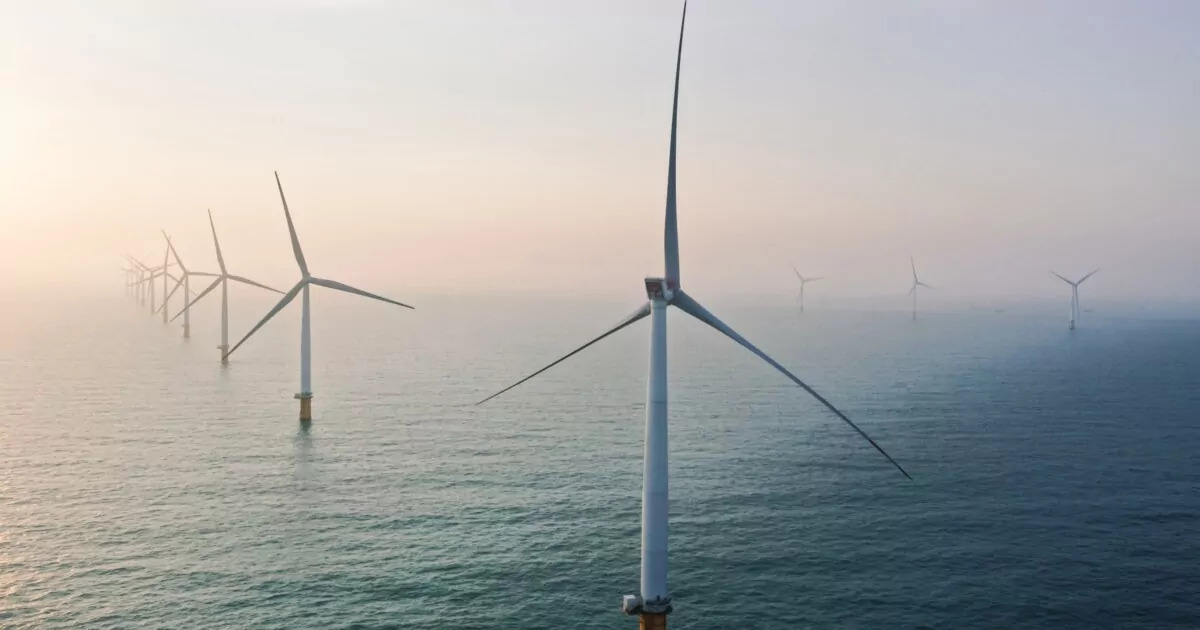NORTHAMPTON, MA / ACCESSWIRE / January 26, 2024 / IBM:

By Yerelee Gonzalez
Watch the video here: How Indigenous perspectives can guide climate innovation for a just transition: IBM teams up with Net Zero Atlantic in Canada
The windswept province of Nova Scotia lies on Canada's Atlantic coast, and comprises part of Mi'kma'ki, the traditional districts of the Mi'kmaq First Nations people. In recent years, Nova Scotia has become a promising site for the clean energy transition, with some of the world's fastest offshore wind speeds and potential for hydrogen development.
But too often, conversations about the impact of energy development in the region do not include Indigenous perspectives or are inaccessible to people outside of the energy industry. Around the world, many vulnerable communities need support to participate in the energy transition. And while climate technology is minimizing impact and helping to make informed energy decisions, the next step in a just transition is to democratize this information and put it in the hands of communities.
Implementing science and technology alongside Indigenous knowledge and community engagement is an essential approach to address climate challenges, one that is known as "two-eyed seeing." To support a just transition, IBM® joined forces with nonprofit Net Zero Atlantic through the IBM Sustainability Accelerator to help enable informed climate decision-making and empower participation in the clean energy transition for Indigenous communities in Atlantic Canada.
A user-first approach to climate tech
Net Zero Atlantic's open source Atlantic Canada Energy System (ACES) Model is a powerful tool for analyzing and forecasting energy generation and infrastructure development scenarios. To describe and interpret future energy system opportunities with accuracy, both computing power and technical knowledge are often required from the user, which can frequently make such tools feel inaccessible.
The IBM Sustainability Accelerator and Net Zero Atlantic set out to transform this complex resource into a user-friendly, accessible application that would support the Mi'kmaq communities' role in energy planning and the transition to net zero, taking a user-first approach from the onset of the project's first phase, the IBM Garage.
"It's a very new way of looking at an energy system model, really looking at it from the user perspective," says Sven Scholtysik, Director of Research at Net Zero Atlantic. "It's usually the other way around. People try to create the most accurate and most advanced model possible-but there's very little insight into how people use it and what motivates them to use it."
The design of "ACES Lite" is focused on enabling the user to navigate complex graphs, geographical models and data interpretations with ease. The application puts user experience first, utilizing IBM technology like hybrid cloud and IBM® Cognos® Analytics alongside the expertise of volunteers from IBM Consulting® and more. And through Net Zero Atlantic's long-standing relationship with the Unama'ki Institute of Natural Resources in Cape Breton, Nova Scotia, ACES Lite has undergone important interactive testing sessions with Mi'kmaq users to generate usability feedback and refine the tool further.
"One of our key roles is to engage community. We do science, but we also engage community to bring forth the traditional knowledge that can be incorporated into that work," says Lisa Young, Executive Director of the Unama'ki Institute of Natural Resources. "The idea guiding this development was, ‘How can this tool inform how the community engages in the conversation about the energy transition? How does it help them make informed decisions?'"
Two-eyed seeing and the importance of collaboration
Implementing technology alongside Indigenous knowledge is an approach known as two-eyed seeing, described by Mi'kmaq Elder Dr. Albert Marshall. Lisa Young shares that this is a guiding approach for the Unama'ki Institute of Natural Resources, and one that the project with Net Zero Atlantic and IBM has incorporated.
"Two-eyed seeing means utilizing the best of Western science and technology, but also pairing it with the best of Indigenous perspectives, knowledge, and wisdom-so, how to use that knowledge in a good way, having a positive impact on the environment," says Young. "In order to bring that perspective, you have to engage community broadly, to help us bring the knowledge from the land and guide us on how we advance the work."
Scholtysik emphasizes the value of collaboration on this project with both IBM and the Unama'ki Institute of Natural Resources. He notes the expertise and enthusiasm of the IBM project team as a highlight of the organization's time in the IBM Sustainability Accelerator. Other communities in Canada, such as the government of Nova Scotia, offshore wind groups, and academic and research teams have also participated in the ideation and testing process thus far, expressing excitement about the tool's potential applications across the province.
What's next for ACES Lite
As a next step, IBM and Net Zero Atlantic will continue to pilot ACES Lite with user groups in Cape Breton, while also exploring new innovations and additions. Feedback from the community has helped to identify where the user experience can be enhanced-for example, an opportunity to enhance the visualization aspects of land usage associated with the development of diverse clean energy technologies, and incorporating a feature that represents the economic impact of such projects. Scholtysik looks forward to bringing the application to the public by the end of 2024 and can even see its potential for deployment in other regions undergoing energy transition.
"Energy system models are an excellent tool for people to have at their fingertips," says Scholtysik. "Models like ACES Lite can make it easier for people to strategically plan for a future energy system that is sustainable, reliable and affordable. But what we really need to do is assess the impact of energy system transitions from a community perspective, and I think ACES Lite marks a first step in that direction."
Learn more about the IBM Sustainability Accelerator
View additional multimedia and more ESG storytelling from IBM on 3blmedia.com.
Contact Info:
Spokesperson: IBM
Website: https://www.3blmedia.com/profiles/ibm
Email: info@3blmedia.com
SOURCE: IBM
View the original press release on accesswire.com

© 2026 Canjex Publishing Ltd. All rights reserved.